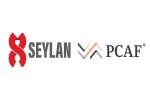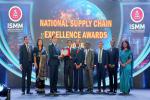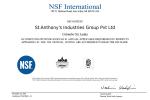This revised rate significantly eases the pressure on Sri Lanka’s export competitiveness and ensures continuity in a key market that contributes substantially to the country’s foreign exchange earnings.
A Timely and Strategic Win
The United States is one of the largest export destinations for Sri Lankan rubber products, accounting for nearly a one third of the sector’s annual export value.
The original tariff proposal of 44% posed an existential threat to the industry, risking order cancellations, job losses and long-term erosion of market share.
Thanks to persistent advocacy and high-level government intervention, Sri Lanka has now secured a much-improved rate of 20%, aligning more closely with key competitors in the region.
While 20% still presents a competitive challenge, it is a substantial improvement from the originally proposed 44%, which could have been catastrophic for many exporters.
Pushpika Janadheera, President of SLAMERP, welcomed the development with the following statement:
“We are grateful to the Government of Sri Lanka, particularly the Hon. President, Minister of Foreign Affairs, and the Department of Commerce, for taking swift and decisive action to protect our national interest.
The reduction of the tariff from 44% to 20% provides relief for hundreds of exporters and safeguards thousands of livelihoods across the country.”
“This outcome reflects what can be achieved when the public and private sectors work in close collaboration.
We also acknowledge the role played by our diplomatic mission in Washington D.C., whose engagement was instrumental in ensuring that Sri Lanka’s value-added rubber exports were fairly considered.”
Preserving Competitiveness and Livelihoods
The rubber products sector, encompassing industrial gloves, tyres, mats, hoses, and medical items, supports over 300,000 livelihoods across Sri Lanka.
The revised tariff ensures:
• Sustained access to a US$300+ million export market
• Stability of rural incomes linked to natural rubber supply chains
• Renewed confidence among international buyers and investors
While this development provides significant relief, SLAMERP reiterates the need for continued strategic engagement with global trading partners to secure long-term market access.
We also urge the government to consider parallel domestic policy support, particularly the extension of SVAT, reductions in input costs, and incentives for export diversification to further strengthen Sri Lanka’s export ecosystem.
SLAMERP stands ready to work alongside government stakeholders to capitalize on this momentum, support economic recovery, and ensure Sri Lanka remains a preferred sourcing destination for quality rubber products.





















